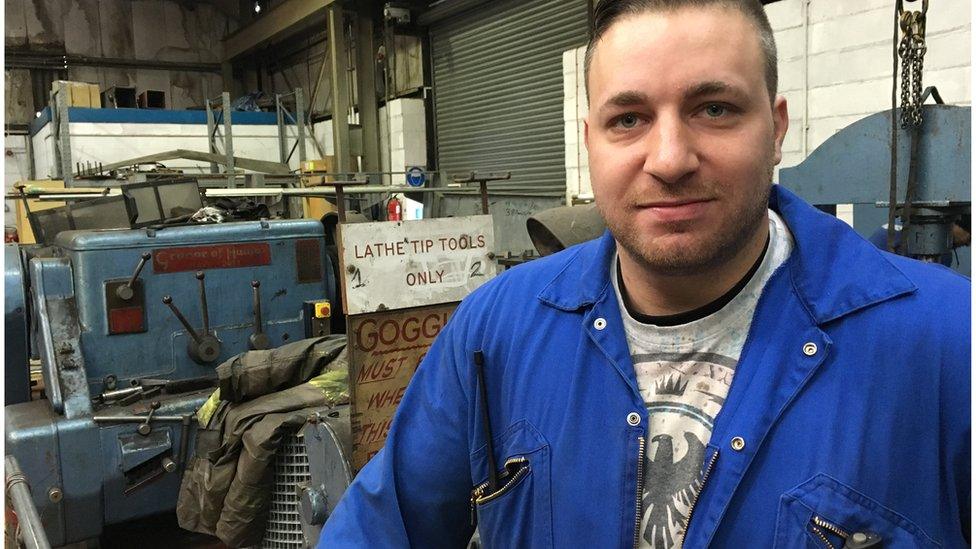Nick Robinson: Hammond primed for UK's MoT
- Published
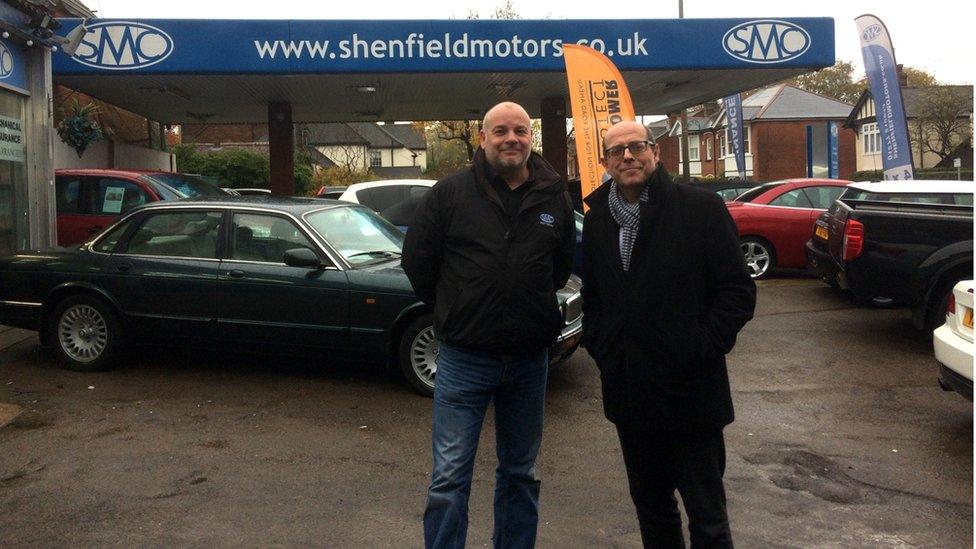
Simon Morris went to school with Chancellor Philip Hammond
The man who has the job of steering our economy around some pretty sharp corners as we head towards destination unknown is - or at least was - a businessman, unlike any of his recent predecessors.
Philip Hammond used to buy and sell cars here in Essex. On Wednesday he will announce the results of what is - in effect - the nation's MoT and he'll present us with a quote for what he says is needed to put right what's wrong.
Those who campaigned for us to leave the EU are frustrated that the chancellor is not doing a better sales job. They wish he would talk excitedly about the journey we're now all on.
Instead, this one-time car dealer has done something nobody in his old trade would ever do.
He has pointed out all of the faults, the knocks and the scrapes the economy has had and even warned people that the road ahead could be very bumpy. No wonder the Daily Mail dubbed him "Mr Gloomy".
'Be honest'
Simon Morris of Shenfield Motor Company, who went to the same school as the chancellor, told me that sales have dropped off in recent months because people are nervous about what might lie ahead.
Nevertheless, he said, he wanted Mr Hammond to be honest about the state of the economy, even if it makes people cautious.
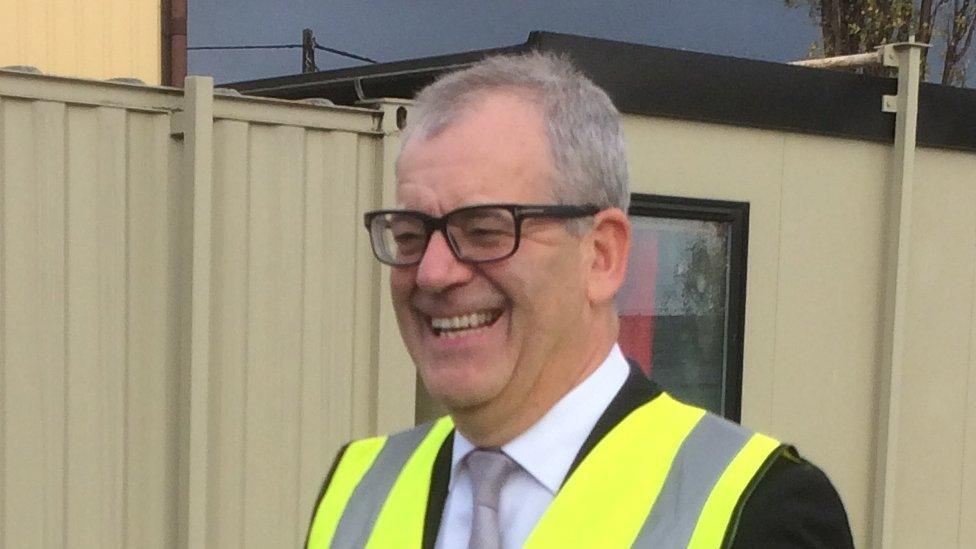
David Wernick urges the chancellor to look on the bright side
"I would go the honesty route, because it will change, people will spend their money again, it always happens," he says.
Just down the road in Wickford, David Wernick runs the Wernick Group, a family firm which supplies and delivers portable cabins and temporary buildings up and down the country.
Its turnover is over £110m. Mr Wernick was a proud supporter of Brexit and agrees that Mr Hammond could lighten up a little about the state of the economy.
"He should be talking up the British economy and looking to the positive effects, particularly of Brexit and what opportunities it offers us and the general economy as a whole," he says.
Low baseline
There is more than one reason for the chancellor's candour.
It is not just that the man who warned the country not to leave the EU believes the gloomy forecasts from the Treasury and the independent Office for Budget Responsibility.
It is not just that he feels he has a duty to tell it like it is (rather than how people might wish it to be).
It is also that he has an incentive to spell out the worst in this, his first economic statement. Rupert Harrison, who was George Osborne's chief economic adviser, says the news he delivers will be treated as a "baseline" for all that follows.
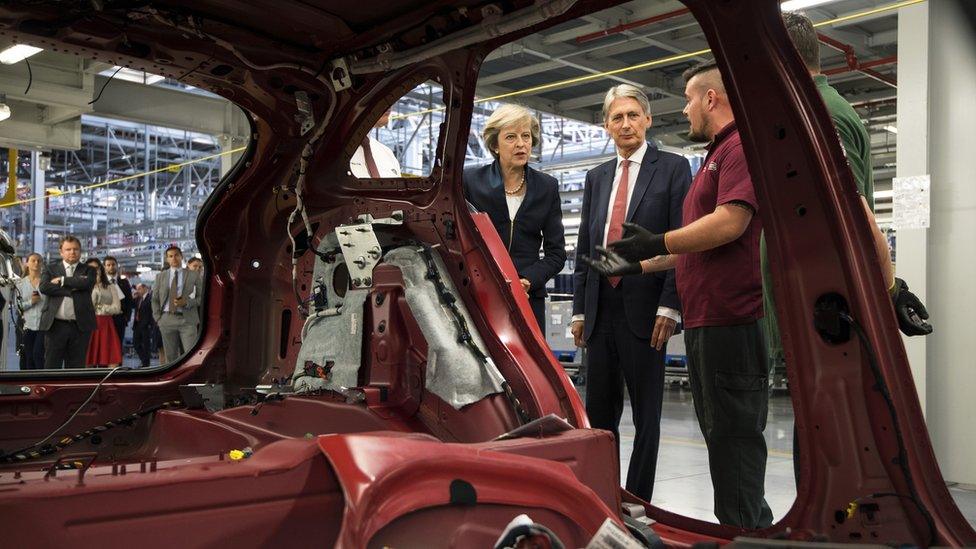
Philip Hammond, who sold cars in an earlier life, is now doing a sales pitch for the UK
Mr Hammond has already abandoned George Osborne's promise to deliver a budget surplus before the next election largely because there was not the faintest chance of it being delivered without drastic cuts or tax rises that few would regard as acceptable or politically deliverable.
He looks set to increase borrowing a little more to invest in building road and rail links and to encourage firms to invest more in research and development.
However, a billion or two here or there is a fraction of the extra amount forecasters say the country will have to borrow as a result of the predicted slowdown - close to £100bn on top of what was in the last set of forecasts over the next five years.
All that matters very little to Maxim McDonald, a director with Gerald McDonald and Company Ltd - a family company in Basildon, which imports food, drinks and spices.
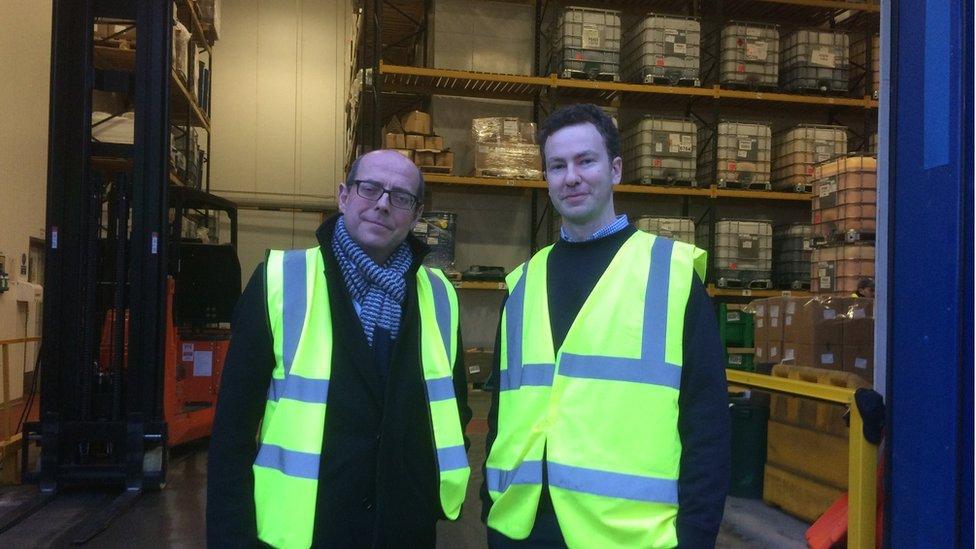
Maxim McDonald wants certainty about how the UK will trade in future
There is only one policy announcement he wants to hear from the chancellor - a plan which delivers some sort of certainty about whether his business will still be able to trade as it does today after Britain leaves the European Union.
"I would just like to hear the chancellor give businesses some assurances that we are not going to leave the EU just for the heck of it, that we are going to have some trade agreements in place or he is going to give some guarantees that we won't leave unless this happens or that happens," he said.
Before the days of George Osborne and Gordon Brown, the chancellor's Autumn Statement was treated first and foremost as a chance to look under the nation's economic bonnet. Since then it has become highly political.
No rabbits?
This statement is not just the first delivered by Philip Hammond, it is the first since Theresa May entered Number 10 and she has promises to deliver on - promises made on the steps of Number 10 to help "ordinary working-class" people and prioritise those who are "just about managing", whom the Treasury has dubbed the "Jams".
The chancellor is going to promise the Jams a little bit of jam tomorrow - a small increase in the National Living Wage, the slowing down of the reversal of cuts to Universal Credit and the banning of upfront fees for those renting a home.
But as late as last week when Philip Hammond presented his draft Autumn Statement plan to officials, fellow ministers and political advisers, he was met by disbelief that he had not conjured up any "rabbits" to reveal from his Autumn Statement hat.

Amy Holtby says her clients are worried about economic uncertainty
Now the chancellor isn't a fan of crowd-pleasing surprises. What's more he's been pointing out that the problem with designing a package that helps those just about managing is that no-one can define who they are, but those who try conclude there are an awful lot of them.
You might think that a pilates class in Brentwood, the home of Towie (the reality TV show The Only Way is Essex) would be the last place you'd find those who see themselves as just about managing.
You would be wrong. Amy Holtby, who owns Contours Pilates in Brentwood, told me that customers had been reining in their spending since the EU referendum.
Despite promotions for "5 star pampering" and the "Essex Foot Lady", people are booking fewer courses and classes as they are worried about economic uncertainty.
One of her clients, freelance hairdresser Danielle Balcombe, told me it was a struggle to keep afloat: "At the moment I just know that I need to keep my head above water and any other luxuries have to take a back seat until, hopefully, things are on the up."
Reality v politics
One calculation by the think tank the Resolution Foundation suggests that as many as 6 million people on incomes from £12,000 to 34,000 could be treated as Jams -- and the definition could even be extended to households with an income of £50,000.
A chancellor wanting to find just £20 a week to help Danielle Balcombe and all of the so-called Jams would need to spend £10bn. That's five times as much as last year's boost to spending on the health service. Without raising taxes on others it simply will not happen.
This is the day that economic reality - or at least the forecasts of it which Number 11 chooses to believe - comes face to face with Number 10's desire to make a political splash.
Before his arrival, the Treasury had a nickname for Mr Hammond. They joked that the man known for his accountant's manner was "Box Office Phil".
These days they delight in the fact that their boss is no flashy salesman. They like the fact that the self-made millionaire who is chancellor chooses to drive a Jaguar XJ - a car that he loves because it cruises along whilst making barely a sound.
- Published22 November 2016
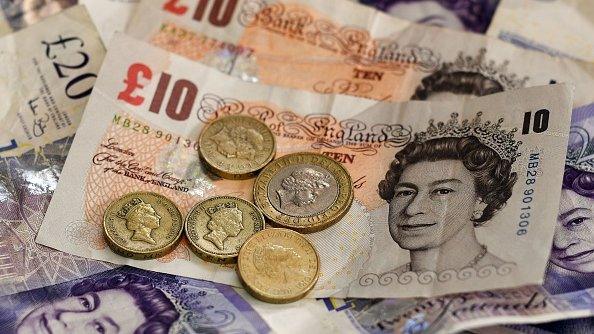
- Published22 November 2016
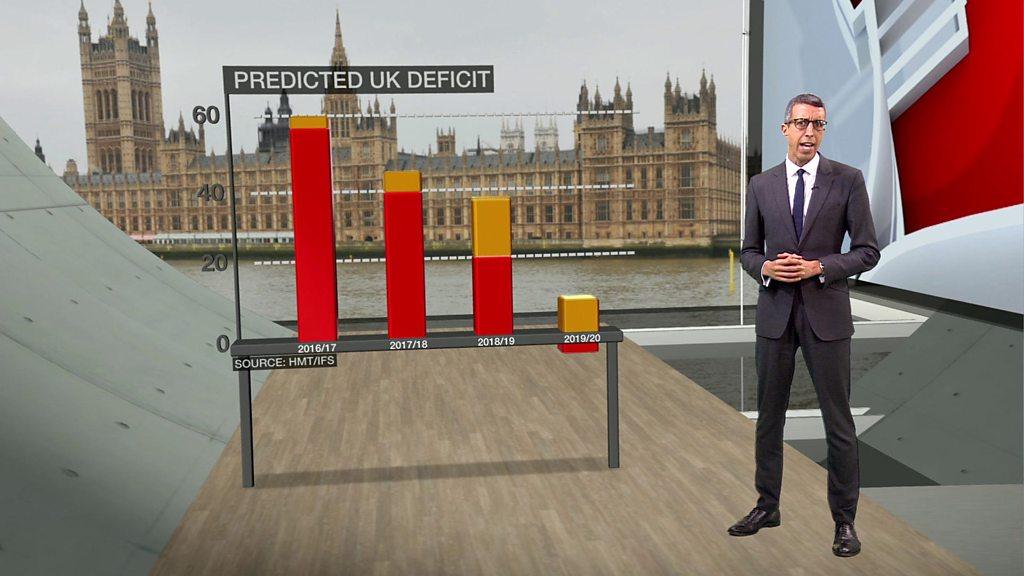
- Published22 November 2016
